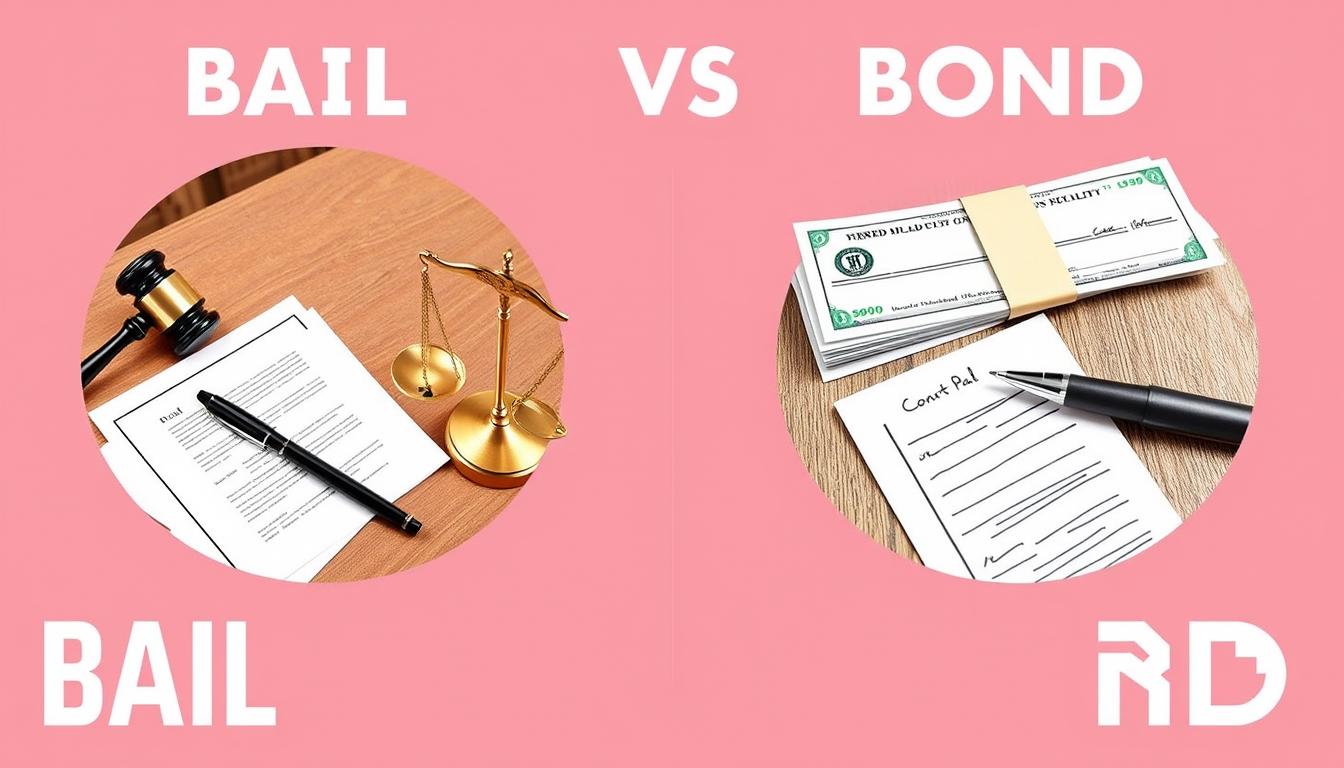Understanding How bail bonds Work and What You Should Expect
Understanding the Process of Protecting a Bail Bond: What You Required to Know
Safeguarding a bail bond can be a complicated procedure. It involves comprehending numerous aspects, from the kinds of bonds readily available to the connected expenses. People frequently forget essential details that can impact their situation. The actions to obtain a bail bond require careful consideration and understanding of responsibilities. As the process unfolds, important choices should be made that could impact the result substantially. What should one anticipate when traversing this challenging landscape?
What Is a Bail Bond?
A bail bond is a monetary arrangement that allows an arrested individual to be released from protection while waiting for trial. This setup entails a 3rd event, commonly a Bail bondsman, who guarantees the court that the individual will certainly return for their set up court appearances. In exchange for this service, the Bail bondsman typically charges a non-refundable fee, usually a portion of the total Bail quantity.
Bail bonds offer an important feature in the legal system, offering a mechanism for offenders to keep their freedom during the pre-trial phase. This can aid them plan for their defense better. The Bail quantity is established by the court based on various factors, consisting of the intensity of the violation, the offender's criminal background, and the threat of flight. Ultimately, a bail bond stands for a commitment to copyright legal duties while enabling people the chance to proceed their every day lives until their court day.
Exactly How Bail Bonds Job
Bail bonds operate through a straightforward procedure that involves a number of crucial actions. Originally, a defendant or their representative calls a bail bond agent after an apprehension. The representative assesses the situation, consisting of the Bail amount established by the defendant and the court's history. As soon as a decision is made, the representative commonly calls for a non-refundable fee, generally a percentage of the complete Bail quantity, typically varying from 10% to 15%.
After the charge is paid, the representative secures the Bail by signing an agreement with the court, making sure that the offender shows up for all arranged court days. If the offender fails to appear, the bail bond agent is in charge of the complete Bail quantity, leading the representative to look for the offender. Throughout this procedure, the bail bond agent plays a necessary function in helping with the release of the defendant while taking care of the connected economic threats.
Sorts Of Bail Bonds
Comprehending the different types of Bail bonds is very important for offenders and their families as they navigate the legal system. There are a number of common sorts of Bail bonds offered, each serving a details objective.
The most common is the guaranty bond, which includes a bondsman ensuring the complete Bail quantity in exchange for a fee. Another type is the cash bond, where the defendant or their household pays the complete Bail quantity in money directly to the court.
Residential or commercial property bonds enable individuals to utilize genuine estate as collateral for the Bail amount. Furthermore, government bonds specify to government instances, often requiring a greater premium and a lot more rigid conditions.
Finally, immigration bonds are made use of in cases concerning immigration offenses. Each type of bond has distinct procedures and ramifications, making it important for those involved to recognize their alternatives extensively.
The Expenses Associated With Protecting a Bail Bond
Safeguarding a bail bond entails different expenses that can considerably affect a defendant's finances. The major expense is the costs, typically varying from 10% to 15% of the total Bail quantity established by the court. This premium is non-refundable, no matter the situation result, standing for the bail bond agent's cost for their services. Added costs may consist of administrative charges, which some representatives impose for handling paperwork, and security needs, where the defendant might need to supply possessions to secure the bond. In situations involving greater Bail amounts, the demand for collateral ends up being much more noticable. bail bonds. Furthermore, offenders should know possible costs associated with missed court dates, which can bring about more punitive damages. Recognizing these costs is crucial for offenders and their households, as they can greatly influence the monetary worry related to protecting a bail bond
The Refine of Getting a Bail Bond
The process of obtaining a bail bond includes a series of structured actions that start with the entry of an application. Candidates should likewise consider different repayment and collateral choices that might be required by the bail bond agency. Comprehending these elements is necessary for steering via the bail bond system effectively.
Application Submission Tips
When individuals are well-informed, navigating the application entry steps for obtaining a bail bond can be simple. The preliminary action entails picking a trustworthy bail bond firm, which often requires research and referrals. When a business is selected, the applicant must complete a bail bond application, providing important details such as the offender's information, costs, and Bail amount. Next, the applicant might need to present identification and any kind of pertinent documents to support the application. After submitting the application, the bail bond firm will certainly review the information and analyze the danger involved. A rep will detail the terms and conditions prior to completing the agreement if authorized. This procedure, while methodical, can vary a little relying on the jurisdiction and the Bail bond company.

Settlement and Collateral Alternatives
When getting a bail bond, recognizing payment and security options is necessary, as these elements can greatly influence the general price and terms click here of the arrangement. Usually, bail bond firms call for a non-refundable charge, usually a portion of the complete Bail amount, which functions as their earnings. Some firms may use flexible payment plans, allowing customers to pay in installations. Additionally, collateral can be needed to safeguard the bond, which might include assets like residential property, lorries, or various other belongings. The kind and value of collateral can affect the bond's authorization and terms. Clients should thoroughly examine their economic scenario and options to ensure they select an option that straightens with their budget and circumstances.
Obligations of the Indemnitor
Guiding with the intricacies of Bail bonds needs a clear understanding of the duties of the indemnitor. The indemnitor, frequently a family member or friend of the defendant, plays a significant role in the Bail process. This individual agrees to assume financial liability, ensuring that the Bail amount is paid if the defendant stops working to show up in court. It is essential for the indemnitor to keep interaction with the bail bond agent throughout the process, giving any necessary details and updates pertaining to the offender's scenario.
Furthermore, the indemnitor should protect collateral, which may consist of building or prized possessions, to back the bail bond. This security secures the bail bond business against possible losses - bail bonds. Must the defendant fail to adhere to court requireds, the indemnitor faces the threat of shedding their security and may be held accountable for the entire Bail amount. As an outcome, comprehending these responsibilities is vital for the indemnitor's financial security

Typical Myths Regarding Bail Bonds
Lots of people harbor false impressions concerning Bail bonds, which can complicate their understanding of the Bail procedure. One widespread misconception is that Bail bonds are a type of payment that guarantees an offender's launch. In reality, they are an assurance to the court that the offender will show up for their arranged hearings. Another common idea is that just wealthy individuals can manage Bail. Bail bondsmen normally charge a percent of the overall Bail quantity, making it available to a more comprehensive range of individuals. Additionally, some individuals think that Bail is refundable. While the premium paid to the bondsman is not refundable, the Bail amount itself may be returned upon the conclusion of the instance, gave the offender satisfies all court demands. Resolving these myths is crucial for individuals going across the complexities of the Bail system and ensuring they make notified choices.
Often Asked Concerns
Can I Protect a Bail Bond for A Person in An Additional State?
Securing a bail bond for someone in one more state is possible, however it typically requires working with a bondsman certified because state - bail bonds. Each jurisdiction has particular guidelines that have to be followed during this procedure
What Happens if the Accused Skips Bail?
If an offender misses Bail, a warrant is generally released for their arrest. The bondsman might additionally seek recuperation initiatives, which can entail working with fugitive hunter to nab the person and find.
Are Bail Bondsmen Managed by the Government?
Bail bail bondsmans are without a doubt managed by federal government authorities. Regulations differ by state, but they typically require licensing, adherence to economic methods, and conformity with legislations to guarantee fair therapy of offenders and their family members.
Can I Make Use Of Security Various Other Than Cash money?
Collateral apart from cash can often be used for Bail bonds, relying on the Bail bondsman's policies. Usual options include residential property, automobiles, or other beneficial properties, which have to normally be assessed and set.
What Is the Function of a Co-Signer in a Bail Bond?
The role of a co-signer in a bail bond is to ensure payment if the defendant stops working to show up in court. This specific approves monetary duty, ensuring that the bail bond contract is supported and enforceable.
If the offender stops working to show up, the bail bond representative is accountable for the complete Bail amount, leading the representative to seek out the offender. Once a business is chosen, the candidate must complete a bail bond application, providing essential details such as the defendant's information, fees, and Bail quantity. Commonly, bail bond companies need a non-refundable charge, normally a percentage of the total Bail amount, which offers as their revenue. Numerous people harbor misunderstandings concerning Bail bonds, which can complicate their understanding of the Bail process. Collateral various other than cash can often be utilized for Bail bonds, depending on the Bail bondsman's plans.